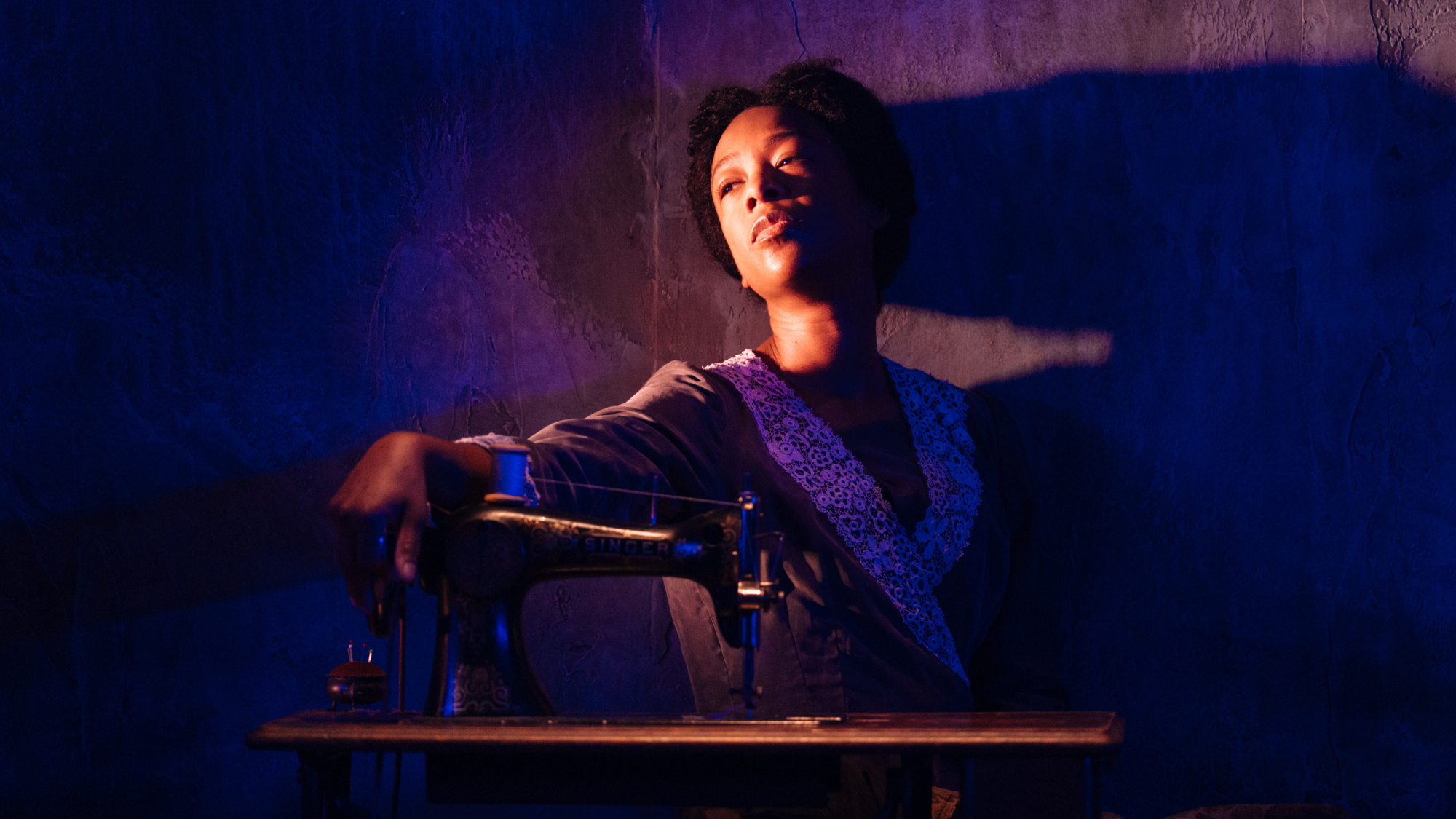Intimate Apparel: a 'gorgeous, vibrant' production
Samira Wiley is 'astonishing' in this revival of Lynn Nottage's 'exquisite' seamstress tale

A free daily email with the biggest news stories of the day – and the best features from TheWeek.com
You are now subscribed
Your newsletter sign-up was successful
Seven years after Lynette Linton made her name at the Donmar Warehouse with a "blistering" production of "Sweat", she has "returned to the scene of her triumph" with another "devastatingly fine" show, said Fiona Mountford in The Telegraph.
The Bafta-nominated British director has turned her hand to a revival of Lynn Nottage's "exquisite" play about a Black corset-maker in 1905 New York, who spends her days crafting intricate undergarments for wealthy women while quietly yearning for a romance of her own.
Esther (Samira Wiley) has recently turned 35 and lives in a rooming house. When she begins receiving "increasingly affectionate" letters from George Armstrong (Kadiff Kirwan), a Barbadian engineer working on the Panama Canal, she is enthralled. But Esther can't read or write, so she enlists her unhappily married client Mrs Van Buren (Claudia Jolly) and "no-nonsense" sex worker friend Mayme (Faith Omole) to help pen her replies.
The Week
Escape your echo chamber. Get the facts behind the news, plus analysis from multiple perspectives.

Sign up for The Week's Free Newsletters
From our morning news briefing to a weekly Good News Newsletter, get the best of The Week delivered directly to your inbox.
From our morning news briefing to a weekly Good News Newsletter, get the best of The Week delivered directly to your inbox.
It's a "compelling and utterly beautiful" show, said Sarah Crompton in WhatsOnStage. Wiley is "astonishing" as Esther; she binds the play together with "remarkable subtlety". Both "innocent and resourceful" she's a "mass of contradictions", flustered when her friends discuss relationships and romance, "yet so full of longing it seems to consume her".
Nottage's writing is "palpably lush" and the audience feels "fully invested in Esther's world", said David Jays in The Guardian. Movement director Shelley Maxwell transforms Linton's production into a "dance"; bodies "swoop around one another" drawing out the "sensuality these New Yorkers crave but must deny themselves".
"It's in the second half that the evening starts to lose its poise," said Clive Davis in The Times. When George arrives, it quickly becomes "obvious" that he may fail to "live up to Esther's ideals", and Nottage adds a few plot twists that "stretch credibility to breaking point".
There are some "predictable revelations" in the second act and George's character doesn't have the same depth as the others, said Sarah Hemming in the Financial Times. But it's a "gorgeous, vibrant" play. Inspired by a photograph of her great-grandmother who worked as a seamstress in New York at the turn of the century, Nottage takes the "scraps" of information she could find about her and "stitches them into a vivid quilt". Like the corsets Esther crafts, it's a "lovely, caring piece of work".
A free daily email with the biggest news stories of the day – and the best features from TheWeek.com
At Donmar Warehouse, London, until 9 August
Irenie Forshaw is the features editor at The Week, covering arts, culture and travel. She began her career in journalism at Leeds University, where she wrote for the student newspaper, The Gryphon, before working at The Guardian and The New Statesman Group. Irenie then became a senior writer at Elite Traveler, where she oversaw The Experts column.
-
 Why are election experts taking Trump’s midterm threats seriously?
Why are election experts taking Trump’s midterm threats seriously?IN THE SPOTLIGHT As the president muses about polling place deployments and a centralized electoral system aimed at one-party control, lawmakers are taking this administration at its word
-
 ‘Restaurateurs have become millionaires’
‘Restaurateurs have become millionaires’Instant Opinion Opinion, comment and editorials of the day
-
 Earth is rapidly approaching a ‘hothouse’ trajectory of warming
Earth is rapidly approaching a ‘hothouse’ trajectory of warmingThe explainer It may become impossible to fix